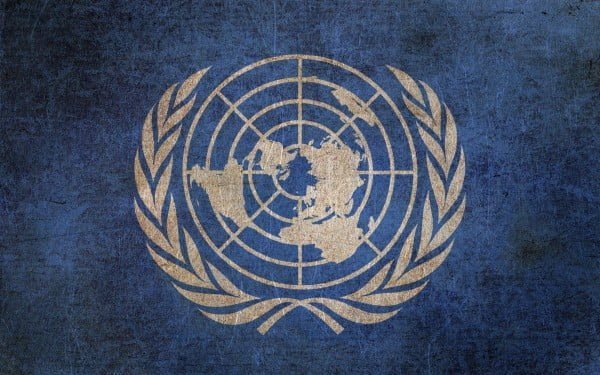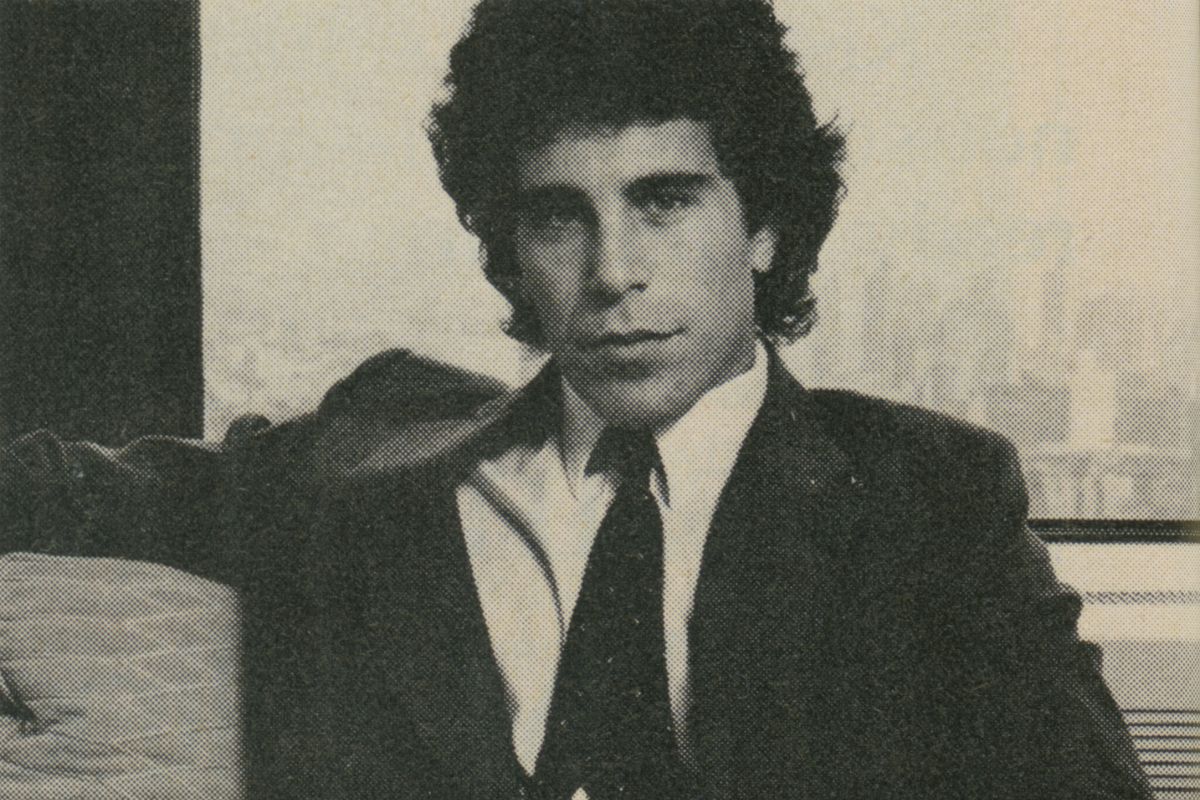At the 2015 Labour conference, shortly after Corbyn’s victory, Labour members voted in favour of a Unite motion to only support air-strikes on Syria if they have United Nations (UN) backing. More recently in the Commons vote to authorise this bombing, in the absence of UN support, Diane Abbott, a key Corbyn ally and Labour left-winger, urged caution, saying that “if some MPs are intent on military action, surely their first step should be to pressure Cameron to obtain some kind of UN resolution?”.
The implication is that bombing Syria, or any other country, is OK if secured through the UN and international law. Indeed it is common to hear the accusation that the Iraq war was illegal, attacking the US and Britain for their unilateralism on this issue. Many on the left see the UN as a force for good, as one of the more enlightened and progressive features of the modern capitalist world. In this view, right-wing leaders are indicted for their disregard or misuse of this instrument for peace, reasonableness and cooperation.
The reality of the UN falls far short of its noble image. The sooner our left leaders in the trade unions and Labour Party shed this utopian illusion, the better for our movement. The claim that the UN has the power, if used, to secure peace – despite the enormous conflicts of interest we see everywhere in the world – is simply not true.
Diplomacy’s den of thieves
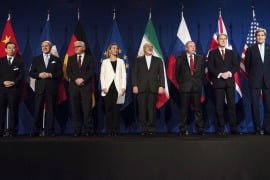 Foreign policy is always and everywhere an extension of domestic policy. The bourgeois politicians who slash the welfare state, attack trade union rights and suppress protests at home use the same methods abroad in their pursuit of profits for the banks and big corporations. “Diplomacy” is a means of dividing the loot of the exploited workers of the world, particularly in the former colonies. The UN simply provides a forum for this world diplomacy to express itself.
Foreign policy is always and everywhere an extension of domestic policy. The bourgeois politicians who slash the welfare state, attack trade union rights and suppress protests at home use the same methods abroad in their pursuit of profits for the banks and big corporations. “Diplomacy” is a means of dividing the loot of the exploited workers of the world, particularly in the former colonies. The UN simply provides a forum for this world diplomacy to express itself.
The UN is governed by the main imperial powers, and can only act when these powers agree. UN forces are deployed by the Security Council, a body where the traditional five nuclear powers (France, China, Russia, the UK and the USA) have a veto. There are very few military conflicts in which all these five powers find themselves on the same side and, consequently, the UN very rarely intervenes anywhere.
Arguably, the most democratic body in the UN is the General Assembly. In this assembly all recognised nations get one vote, and therefore a number of resolutions have passed against the will of the US and other major powers. The US blockade of Cuba has, for example, been condemned by innumerable resolutions of the Assembly, starting in 1993, but this hasn’t prevented the US from continuing the embargo, deepening it and extending it to other countries.
That is not to say that UN resolutions, reports etc. are worthless. In fact, all kinds of horse trading also goes on, in which favours are exchanged. In a recent scandal, the UK backed the Saudis to the UN Human Rights Council in return for the Saudis backing the UK onto the same body. Similarly, votes in the General Assembly are bought with promises of aid, the bulk of which regularly winds up in the pockets of ministers and civil servants. It is part-and-parcel of the games, behind-the-scenes deals and corruption that constitute bourgeois diplomacy and foreign policy.
The UN has enjoyed 70 years of existence at the summit of the so-called ‘international community’. How then has it used its position over the decades to prove its peace credentials?
Most frequently the UN is discussed in terms of resolutions at the Security Council regarding things like sanctions. However, in various conflicts and disasters it has its own forces (‘loaned’ from various member states) that directly intervene. It is in this area of direct UN intervention that it most openly displays its own independent characteristics; and if it were an honest force for peace and reconciliation it is precisely here that this should be most unambiguously shown. But its record shows that the UN simply follow the interests of the main powers.
In the early stages of the Cold War the UN was far more actively involved in world affairs. In Korea, it played an active role on the side of US imperialism, in support of the bourgeois dictatorship of South Korea, which was conducting a struggle against the revolutionary movement that arose in the struggle against Japanese occupation. The Korean War was an attempt by the US to impose the regime of Syngman Rhee on the Korean population after it practically collapsed in the summer of 1950. The intervention was approved because the Soviet Union were boycotting the Security Council in protest against China’s exclusion from the same.
Intervention in the Congo
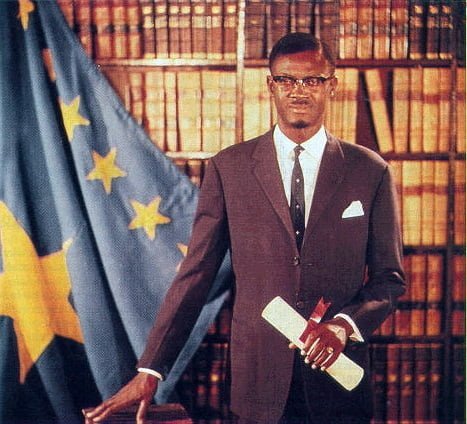 Another notorious example is the revolution in the Republic of the Congo in 1960. Like many other leaders of the colonial struggle, Patrice Lumumba, was forced to the left in his struggle against imperialism. Once free of overt Belgian domination, Congo immediately found itself fighting a secessionist insurrection in the mineral rich South-East (Katanga). The rebellion was backed by the former colonial power Belgium in an attempt to destabilize the new government. Lumumba appealed to the UN for help against this blatant meddling in Congo’s internal affairs.
Another notorious example is the revolution in the Republic of the Congo in 1960. Like many other leaders of the colonial struggle, Patrice Lumumba, was forced to the left in his struggle against imperialism. Once free of overt Belgian domination, Congo immediately found itself fighting a secessionist insurrection in the mineral rich South-East (Katanga). The rebellion was backed by the former colonial power Belgium in an attempt to destabilize the new government. Lumumba appealed to the UN for help against this blatant meddling in Congo’s internal affairs.
In response to his request, the UN Security Council decided to send military assistance to the Congo. However, tellingly the leading UN staff sent over had no meaningful connection to the country, its people and their cause. Instead they were Westerners, and naturally upper class, with far more ties to the countries Lumumba was fighting against (Belgium and the US) than with Congo. In his 2001 book The Assassination of Lumumba, Belgian writer Ludo De Witte has decisively proven that these UN forces worked to overthrow Lumumba rather than protecting the peace and the legitimacy of its first democratically elected government. The UN only passively requested that the Belgians withdraw from the Republic of the Congo; it never condemned or took real action against blatant Belgian meddling.
Rather, its presence made things more difficult for the new regime. It took over the radio station and the airport. It stopped him calling on friendly African nations for support and blocked aid from the Soviet Union.
“It is alleged that Hammarskjöld [Secretary General of the UN at the time] played a role in [Lumumba’s] assassination and Lumumba himself confirmed in a letter to his wife few hours before his death that the Belgians were conniving with some high officials at the United Nations to inflict pains on him and his people. The United Nations wanted to overthrow Lumumba’s government in August 1960 and in early 1961…Abstract rights did not inspire the actions of the United Nations and other international institutions and principles and this was shown by the different treatments accorded Lumumba in 1960 and Tshombe in 1961” (Fidelis Etah Ewane, The United Nations in the Congo from 1960-4: Critical Assessment of a Tragic Intervention)
Only after Lumumba was removed and assassinated in a coup did the UN take decisive action against the Katanga rebels. Reflecting on the criminal actions of the UN in sabotaging and destroying the first democratically elected government in this most exploited and oppressed of nations, it is immediately obvious why it behaved as it did: the countries carrying out the actions the UN was called on to prevent – that is Belgium and the USA – are highly powerful, influential countries, one of whom has a seat on the UN’s Security Council and hosts its headquarters. It is obvious that that is why the UN helped these countries to destroy a revolution that was against their interests. Lumumba’s tragic mistake was to trust in the UN’s supposed respect for national sovereignty and peace.
“The Stabilisation of Haiti”
As Ted Grant pointed out, “Since the Second World War, there have been wars every year, and in everyone, the United Nations has been unable to take action.” The UN ‘peacekeeping’ forces seem to resemble a man trying to mop up a flood with a hand sponge, so relentless is capitalism’s drive to war and chaos. But it is worse than that, the UN ‘peacekeepers’ are not just weak; where they are deployed, it is not in the interests of peace but of the dominant imperialism.
This was shown very clearly in Congo in the 1960s, but it is also shown in Haiti today. The UN’s lack of interest in promoting peace and helping to get this impoverished country on its feet is glaringly obvious; the only reason most are unaware of it is that our media is not interested in telling its story.
The UN occupation of Haiti (see also Haiti 2004-2014: 10 years of the UN’s Military Dictatorship) has been ongoing for eleven years now, and is quite deliberately called the ‘UN Mission for the Stabilisation of Haiti’ (MINUSTAH), in much the same way the North Korean regime refers to itself as democratic. This occupation follows a US facilitated coup in 2004 against the left-wing president Aristide, who was Haiti’s first elected president. The UN mission’s official role is as a neutral arbiter to stabilise the country amidst the violence in the coup’s aftermath. In reality it has acted to suppress any attempts by Haitians to organise politically against the coup regime and in favour of Aristide or any other left-wing, anti-US government force.
The UN forces have even barred Aristide from returning to the country (ostensibly to prevent any violence his presence would supposedly cause, ignoring the fact that the coup and its violence was organised by the current regime!). In 2005 US ambassador James Foley wrote in a confidential cable that an August 2004 poll “showed that Aristide was still the only figure in Haiti with a favorability rating above 50%.“
“At a meeting with U.S. State Department officials on 2 August 2006, former Guatemalan diplomat Edmond Mulet, then chief of MINUSTAH, ‘urged US legal action against Aristide to prevent the former president from gaining more traction with the Haitian population and returning to Haiti’. At Mulet’s request, UN secretary general Kofi Annan urged South Africa’s president Thabo Mbeki ‘to ensure that Aristide remained in South Africa’…In a 2008 United States embassy cable, former US ambassador to Haiti Janet Sanderson emphasized that: ‘A premature departure of MINUSTAH would leave the [Haitian] government…vulnerable to…resurgent populist and anti-market economy political forces—reversing gains of the last two years. MINUSTAH is an indispensable tool in realizing core USG [US government] policy interests in Haiti.’”
As befits a political occupation, the MINUSTAH forces engage in direct repression of the Haitian people. According to a Brazilian soldier who was part of the UN mission here, “The truth is that that not a day passes where the UN troops don’t kill a Haitian in an exchange of fire. I myself definitely killed two, others, I didn’t look back to see”. (Folha de SP, 29/01/2006). Independent journalists say that more than 20,000 have died or disappeared in the last 10 years!
The leader of the Brazilian Lawyers’ Association (OAB-RJ) Anderson Bussinger Carvalho, pointed out that the international military occupation under the command of Brazil [i.e. MINUSTAH] “has an interest in exploiting Haitian labour through free zones.” The working day is often longer than 12 hours a day and the minimum wage amounts to a pitiful $120 a month.
The MINUSTAH forces routinely raid Haitian slums, ostensibly against drug dealers, but in reality against the so-called “resurgent populist and anti-market economy political forces”. Tens of thousands have been killed and many have been raped. In November 2007, 114 members of the 950 member Sri Lanka peacekeeping contingent in Haiti were accused of sexual misconduct and abuse. 108 members, including 3 officers were then sent back after being implicated. The UN Office of Internal Oversight Services has admitted that “acts of sexual exploitation and abuse (against children) were frequent and occurred usually at night, and at virtually every location where the contingent personnel were deployed.” In 2015 MINUSTAH peacekeepers were accused of abusing hundreds more Haitians.
If this wasn’t bad enough, the UN ‘peacekeepers’ have brought cholera to the island for first time in 150 years, leading to over 9000 deaths! Trying to wriggle out of this scandal, the UN is relying on its official legal immunity! But the UN is clearly responsible – Nepalese members of its forces were not screened for cholera despite the disease being prevalent in Nepal! “The UN mission hired a private contractor to ensure sanitary conditions for its force in Haiti, but the contractor was poorly managed and failed to provide adequate infrastructure at the UN camp in Mirebalais. As a result, contaminated sewage was deposited in the Meille river, a tributary of the Artibonite, Haiti’s longest and most important river.” (The Guardian, 11.3.2014)
MINUSTAH is evidently nothing short of a military occupation on behalf of the interests of those dominant imperial powers who bankroll and run the UN. They don’t want to see a popular left-wing government in place, and feel the country is sufficiently ‘beneath the radar’ of public opinion and international interests for them to get away with occupying it. This then enables their companies to exploit its labour free from government intervention. This sums up the character of the UN in general.
Mockery and incompetence
 Many have mocked the recent satire-killing appointment of Saudi Arabia as the Chair of the UN Human Rights Panelwithout drawing conclusions for what this implies about the UN itself. The Independent highlights this black comedy, noting that “the Saudis’ bid emerged shortly after it posted a job advertisement for eight new executioners, to cope with what Amnesty International branded a ‘macabre spike’ in the use of capital punishment, including beheadings, this year.” It is entirely clear that the Saudis have been given this position in an attempt by the Western powers to improve relations after recent deals with Iran.
Many have mocked the recent satire-killing appointment of Saudi Arabia as the Chair of the UN Human Rights Panelwithout drawing conclusions for what this implies about the UN itself. The Independent highlights this black comedy, noting that “the Saudis’ bid emerged shortly after it posted a job advertisement for eight new executioners, to cope with what Amnesty International branded a ‘macabre spike’ in the use of capital punishment, including beheadings, this year.” It is entirely clear that the Saudis have been given this position in an attempt by the Western powers to improve relations after recent deals with Iran.
The absurdity of this appointment even managed to top the 2007 appointment of Tony Blair as ‘the Quartet’s’ Middle East Peace Envoy. The Quartet is a self-appointed body pretending to help end war in the Middle East, consisting of the UN, the EU and the world’s least qualified countries for this job, the US and Russia. That the UN has carried out these appointments utterly discredits it not only as an organisation of peace, but simply as an organisation of competence and seriousness.
Tony Blair’s appointment and resignation tell us much. He resigned this year as ‘peace envoy’ after his utter disinterest in even pretending to perform the role provoked Middle Eastern leaders to complain about him. They accused him of rarely visiting the region, and of doing nothing other than chumming up to the Israelis, the obvious oppressor in the exact conflict he was supposed to help resolve. Not just that, but he was using it to line his own pockets with millions of dollars of “consultant fees”. Why did the UN help appoint this war criminal? Because it has no real independence from the imperial powers, whom Blair represents. It is an organisation of these powers.
Promising everything; achieving nothing
The sheer failure of his role, which was so predictable when appointed in 2007, reminds us of the endless peace talks and negotiations the UN facilitates that never lead anywhere, precisely because they are fundamental conflicts of interest and not accidental misunderstandings. The Israel-Palestine conflict is the most obvious example, but there are countless others.
The Nuclear Non Proliferation Treaty has done nothing to prevent many countries from developing nuclear weapons. UN sponsored climate change treaties are routinely ignored by all the polluting powers. Israel ignores what the UN says on its borders, and gets away with it. The UN issues plaintive reports about the humanitarian disaster engulfing Yemen thanks to Saudi bombing, but will do nothing because the US backs this action. It is likely that Assad has now used chemical weapons even after promising to hand them all over to the UN, but nothing will be done since the main powers cannot agree on what to do. In the 1960s the Secretary General huffed and puffed a great deal, but the UN never opposed nor did anything about the Vietnam war (in which 3m were killed by the US) because the US was the invading party.
Evidently, the UN has no power or interests of its own to somehow stop the endless violence of capitalism. Those who call for UN approval to legitimise our government’s bombing of other countries believe there has not been enough talking and that we’re too quick to rush to action. Not enough talks! The UN facilitates endless rounds of doomed negotiations between powers who will never agree because they have opposing interests.
There is no magic power to the discussions hosted by the UN. They merely serve as instruments for buying time and diplomatic cover for the imperial designs of the capitalist powers. Arguing that the government has been wrong for not negotiating through the UN before going to war utterly misses the point – an imperialist action is no less imperialist because it has the approval of the other imperial powers. A UN resolution is only there to sow the illusion that the war is just.
The meaninglessness of UN approval
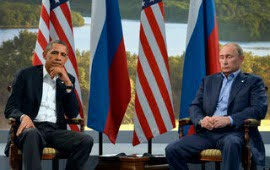 Indeed we have some examples of UN sanctioned ‘legal’ wars and bombing campaigns. In the end, the UN security council passed a resolution that could be interpreted as approval for bombing Syria. Why? Because all the powers wanted to bomb Syria and this gave them the required diplomatic cover. In Iraq, the government requested the bombing, which makes it legal according to international law. In the eyes of many, that would immediately justify it – the Iraqi government wants it! But who are the Iraqi government? Why should we automatically believe in its legitimacy when many ordinary people understand correctly that our own government does not honestly represent us?
Indeed we have some examples of UN sanctioned ‘legal’ wars and bombing campaigns. In the end, the UN security council passed a resolution that could be interpreted as approval for bombing Syria. Why? Because all the powers wanted to bomb Syria and this gave them the required diplomatic cover. In Iraq, the government requested the bombing, which makes it legal according to international law. In the eyes of many, that would immediately justify it – the Iraqi government wants it! But who are the Iraqi government? Why should we automatically believe in its legitimacy when many ordinary people understand correctly that our own government does not honestly represent us?
The Iraqi government is a product of our own government’s invasion of the country and is utterly dependent on imperialism. The previous president (himself both a product of the invasion, and a factor in the rise of ISIS, thanks to his Shia sectarianism) was ousted only thanks to enormous pressure from the US and the UK, and the new one was put in place with explicit approval from the western imperialists. So it is hardly a surprise that this puppet government now requests Western help.
The bombing of Libya in 2011, which helped end the Gaddafi regime, was UN approved. Does that make the current disaster of a situation in this country (or more accurately former country, for it is falling apart) any better?
When the UN approves military action, all it means is that this action is in the mutual interests of the imperialist powers. It in no way makes the action humane, rational or careful. It does not bring together the people of the world for a collective effort to make the world a better place.
As in Haiti, UN sponsored action merely represents a temporary alignment of the interests of competing powers to plunder the weaker nations; again as in Haiti, the matter is usually a very minor one from the imperialists’ point of view, otherwise consensus could not be reached.
The barrier of the nation state
The UN could only make a meaningful difference if it could somehow engineer broad, peaceful consensus on the major problems of world relations; but it is precisely here that, by definition, consensus cannot be reached, since it is on key interests that the powers must collide.
The impossibility of achieving true internationalism under capitalism is most forcefully proven by the current debacle of the EU, which is in terminal decline. Full European integration, ‘ever closer union’, will never be attained, and at the present time the EU is only exacerbating tensions between nations.
As the 19th century Tory Prime Minister Lord Palmerston put it: “Nations have no permanent friends or allies, they only have permanent interests.” Trotsky correctly argued:
“The bourgeois states do not divide themselves into ‘friends’ and ‘enemies’ of peace – especially since ‘peace’ as such does not exist. Each imperialist country is interested in preserving its peace, and the more sharply interested, the more unbearable this peace may be for its enemies. The formula common to Stalin, Baldwin, Leon Blum, and others, ‘peace would be really guaranteed if all states united in the League for its defense’, means merely that peace would be guaranteed if there existed no causes for its violation.”
The most profound and persistent conflict in world relations this century will surely be that of the US and China. The beginnings of this conflict are already clear as China attempts to seize land and influence in the South and East China seas. In its actions it is routinely antagonising the US and the Asian Pacific nations. What peaceful influence is the UN exerting on China, a member of its own Security Council? How will the UN ameliorate or help overcome this most dangerous of antagonisms between two members of its Security Council, who each hold a veto over the other? The reality is that it will not and cannot make the slightest difference, because the conflict is a fundamental one between the power and stability of these two powers.
For a socialist Britain in a socialist world
As Ted Grant argued:
“The United Nations remains merely a forum for all the powers, where only secondary conflicts are solved. It cannot bring permanent peace as the history of the post-war world has shown…The United Nations is not a power in itself, but merely reflects the relation of forces in the world between the powers…There is only one force stronger than any weapon of mass destruction and that is the international solidarity of the working class. Workers in America, in Russia, in Germany and in Britain, like the workers everywhere, have their class interests in common. It is to them and not to the rulers of the world, that the labour movement must look for a solution of the problem of peace…End the system that leads to war. Fight for a socialist Britain in a socialist world.”
The UN cannot be transformed into a democratic organisation representing the world’s interest in peace. The existence of capitalism is a fundamental barrier to peace, hence the endless war and turmoil we can witness throughout the entire history of capitalism. It is foolish to appeal to a club of rulers to help end the wars waged by these same rulers.
Only the working class can put an end to war and suffering, because only the working class has peace and solidarity in its material interests. The British working class has not benefitted from the Iraq war – a war that has only made the world more dangerous for us. The bosses of the oil companies, meanwhile, have benefitted handsomely.
We must construct our own socialist organisations of international working class solidarity to really fight for peace.

